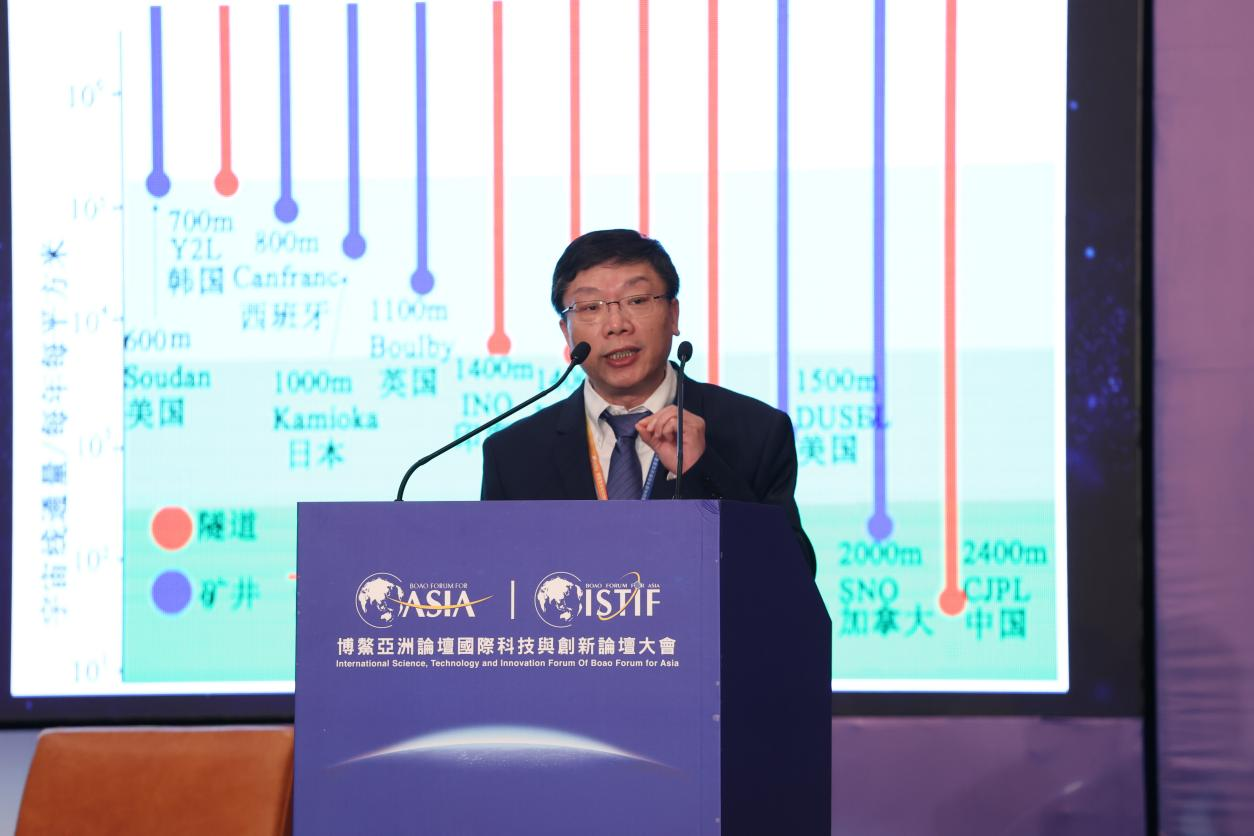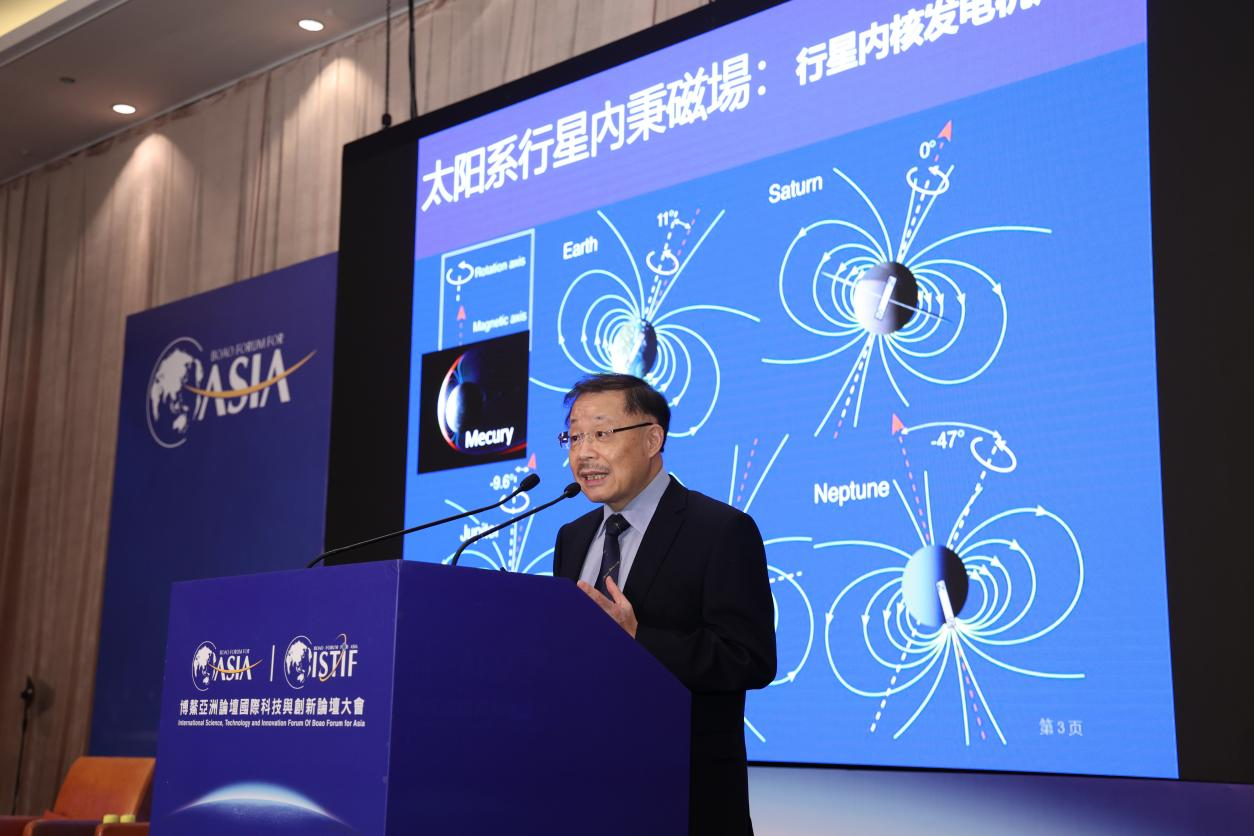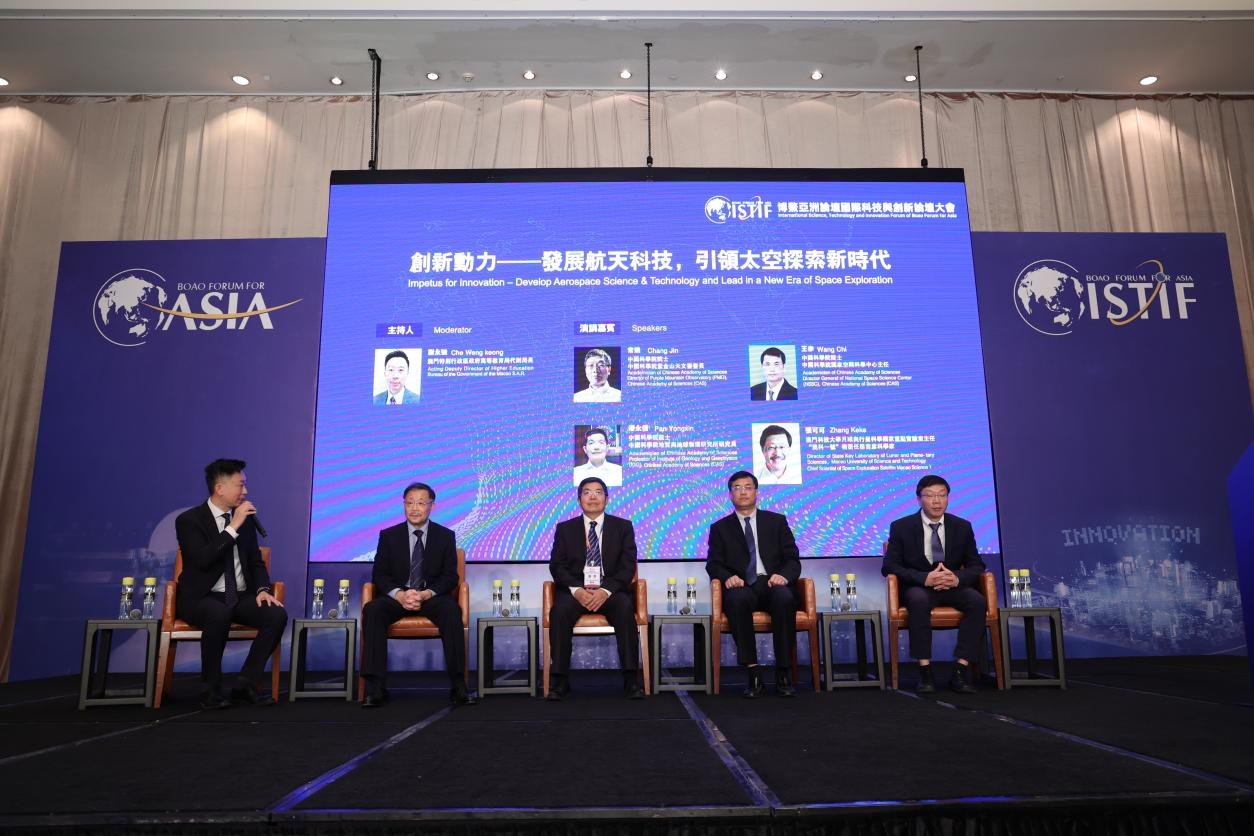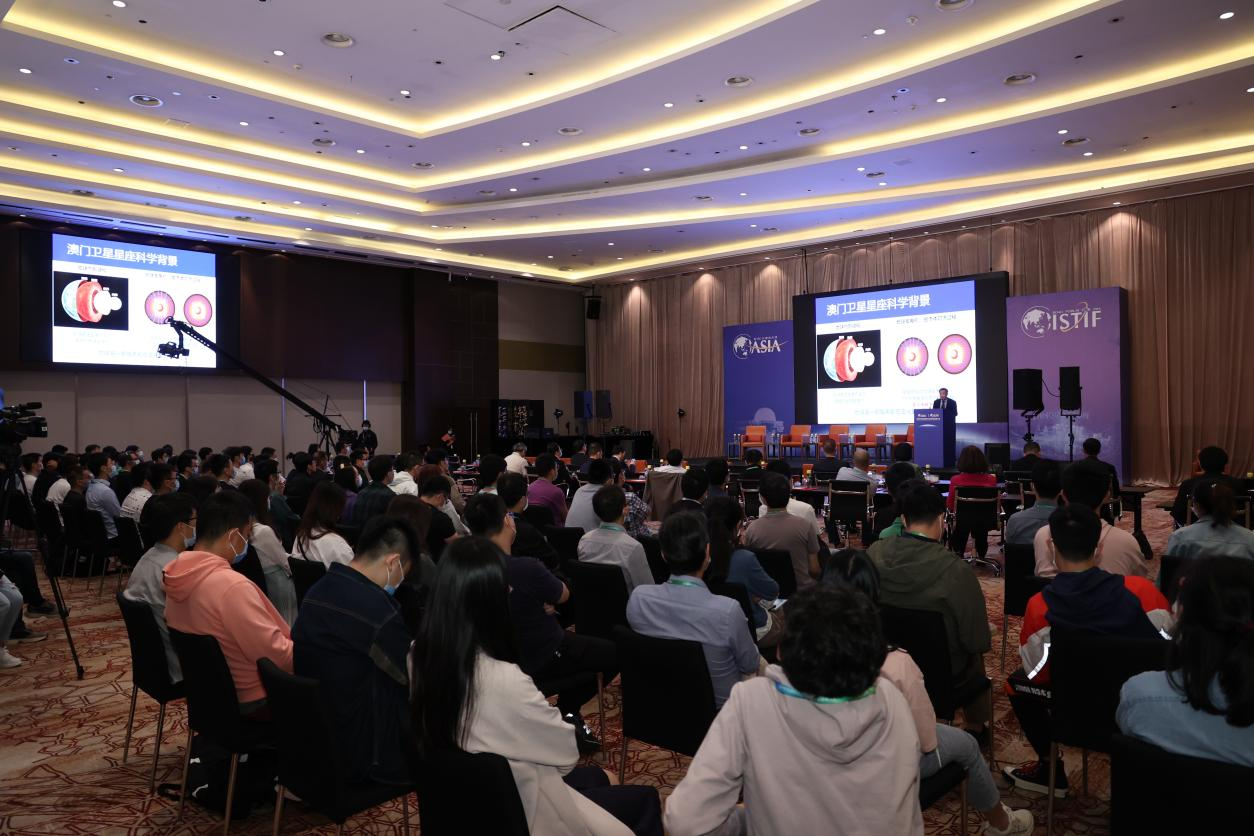Humanity is accelerating the opening of future-oriented space science and technology and space exploration capabilities. With the deepening of scientific knowledge and the leap in technological capabilities, mankind's imagination and creativity for the universe and the future are moving into reality at an unprecedented pace. Aerospace science and technology and space exploration have become a perfect combination of scientific and technological frontiers, market opportunities and national strategies. Promoting the upgrading of aerospace science and technology innovation capability is both an opportunity of the times and a historical mission.
The session “Impetus for Innovation – Develop Aerospace Science & Technology and Lead in a New Era of Space Exploration” was moderated by Che Weng keong, Acting Deputy Director of Higher Education Bureau of the Government of Macao S.A.R.; Chang Jin, Academician of Chinese Academy of Sciences and Director of Purple Mountain Observatory (PMO) Chinese Academy of Sciences (CAS); Wang Chi, Academician of Chinese Academy of Sciences and Director General of National Space Science Center (NSSC); Pan Yongxin, Academician of Chinese Academy of Sciences, Chief Scientist of the Mars Exploration Mission of Tianwen-1 and Professor of Institute of Geology and Geophysics (IGG); Zhang Keke, Chinese Academy of Sciences Director of State Key Laboratory of Lunar and Planetary Sciences in Macao University of Science and Technology, and Chief Scientist of Space Exploration Satellite Macao Science, focused on space science and technology and space exploration, and shared their respective research and scientific progress in the fields of planetary Earth, the near-Earth environment, the Earth-Moon system, the Sun-Earth space, the solar system, and even the interstellar cosmos, and showed the audience the latest research results and future prospects in the four major fields of dark matter, space science, life exploration and geomagnetic science.
Dark matter research is an aerospace scientific research activity that has lasted for a long time. In the session, Chang Jin introduced to the audience the major breakthroughs and important means since mankind began to detect dark matter. Observation and research of dark matter has been a difficult breakthrough in the field of aerospace exploration, and he hoped that progress can be made in the relevant aspects in the future, and said that such breakthroughs will greatly impact modern fundamental physics, triggering a strong revolution.
Space science is one of the basic disciplines of aerospace, and Wang Chi pointed out in his speech that the detection of gravitational waves in space is a very important and popular scientific research activity in space science detection, and at the same time, it is also an unsuccessful scientific research activity at the moment, and Wang Chi said that if gravitational waves in space can be successfully detected and recorded, it will be a Nobel-level discovery.
Unlike gravitational waves in space, which is still in the theoretical stage, geomagnetic science is a widely used space technology. In his speech, Zhang Keke introduced the launch and work plan of two high-precision geomagnetic satellites, Macao I and Macao II. According to Zhang Keke, Macau I and Macau II satellites would become the only satellites in the world to provide high-precision magnetic field information in 2021, which would be an opportunity for Macau to become the world's centre of geomagnetic science and technology in conjunction with the establishment of a ground satellite station and a cloud-based data centre.
Life science is a fundamental discipline in the field of space exploration. According to Pan Yongxin, research in the field of space exploration is currently faced with five important scientific issues: the question of how the Sun is formed and how the planets operate, the question of the habitability of Earth-like planets, the revelation of the study of the habitability of the Earth, the question of the nature of the giant planets and their satellites, and the question of the existence of life on extraterrestrial planets. The solution of these problems requires an accelerated integration of social scientific forces, with a strong emphasis on international scientific cooperation, equality and mutual benefit, peaceful use and common development.






